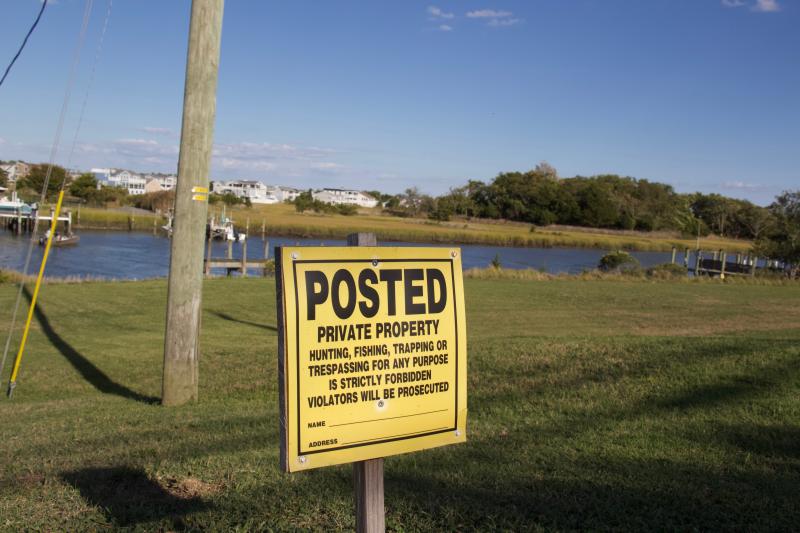Two concerns that surfaced during the review of Roosevelt Landing, a new development coming to the site of the former Lewes Dairy, centered around possible artifacts on the site and the plan’s use of open space.
Wanting to ensure the intent of the city’s regulations is realized, the Lewes Planning Commission is working on recommendations regarding those issues to present to Lewes Mayor and City Council.
Archaeological survey
City code discusses site suitability and lays out the rules for development. Proposed land use is supposed to address long-term sustainability needs without increasing danger to residents. Design plans should go into detail about existing site conditions, including historic or cultural resources on and around the site. The language, however, does not specifically require an archaeological survey.
The planning commission is examining the criteria needed for a professional archaeologist to survey the site before final approval. A condition added to Roosevelt Landing approval required an archaeological study near the outer wall of the neighboring St. Peter's Episcopal Cemetery. Commissioners are considering making that condition a requirement in the future.
The history of some properties is well documented by officials or residents, providing commissioners with background information prior to approval. There are other instances when archaeological evidence is discovered during construction. Commissioner Bob Heffernan suggested establishing criteria for when these instances occur.
The Delaware Unmarked Human Remains Act requires a project to stop completely if unmarked human remains are discovered. Depending on whether the remains are from pre-contact populations or not, the Human Remains Committee decides on their disposition unless descendants take possession.
If the remains are removed, an archaeological survey and excavation of the area are required.
Lewes requires an investigation if anything is discovered in the field, but that would occur after approval has been granted and work has begun. The recommendation under consideration by the planning commission would require an archaeological study prior to the approval of any new subdivision when officials deem one to be necessary.
Open-space requirements
Commissioners sent a recommendation regarding open-space requirements to mayor and city council following a 6-3 vote.
Lewes requires developers to set aside 20% of a project for open space. In some cases, subdivisions are being developed on areas that were once open space, despite not being zoned as such. When construction begins, homes and infrastructure begin to take away trees, modify stormwater management and convert pervious surfaces into impervious surfaces. Heffernan repeatedly questioned the use of the existing open space being used by the Roosevelt Landing developer.
Although the open-space requirement was satisfied in the plans, Heffernan said the reality is that eight homes will be moving into a lot that once contained one dairy building. Most of the open space in the new development has already been designated open space, he said. Some planners feel the intention of the open-space requirement is not to use areas that have already been designated as such, but rather preserve sections of a subdivision from further development.
Officials have proposed excluding land previously marked open space from counting toward the overall percentage of open space in a subdivision. The current standard requires the developer to achieve 20% open space, but it does not specify how a developer may achieve that percentage.
The commission’s recommendation would keep the requirement simple, but disqualify existing open space.
Mayor and city council will discuss the recommendation at a future meeting.
Aaron Mushrush joined the sports team in Summer 2023 to help cover the emerging youth athletics scene in the Cape Region. After lettering in soccer and lacrosse at Sussex Tech, he played lacrosse at Division III Eastern University in St. David's, PA. Aaron coached lacrosse at Sussex Tech in 2009 and 2011. Post-collegiately, Mush played in the Eastern Shore Summer Lacrosse League for Blue Bird Tavern and Saltwater Lacrosse. He competed in several tournaments for the Shamrocks Lacrosse Club, which blossomed into the Maryland Lacrosse League (MDLL). Aaron interned at the Coastal Point before becoming assistant director at WMDT-TV 47 ABC in 2017 and eventually assignment editor in 2018.























































